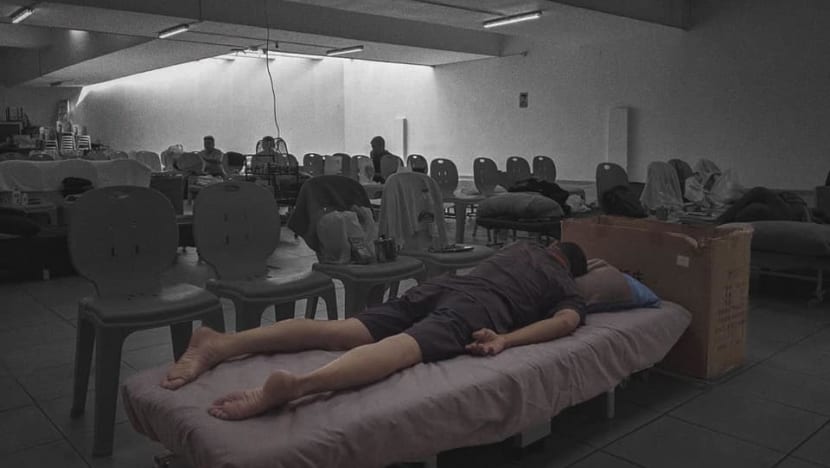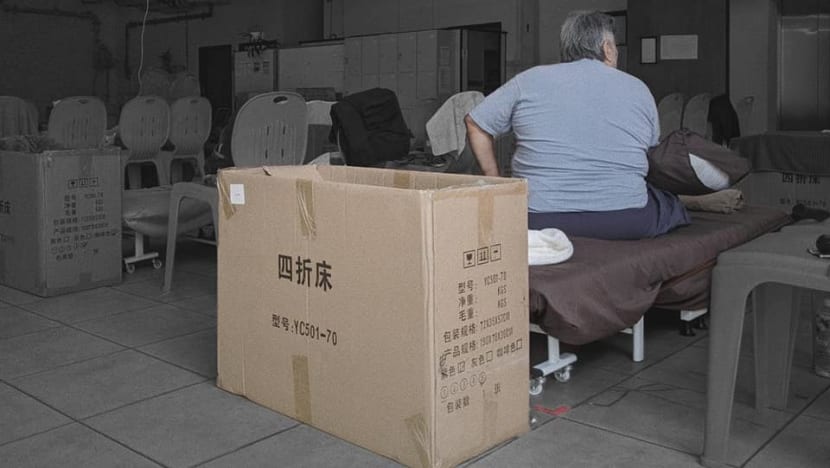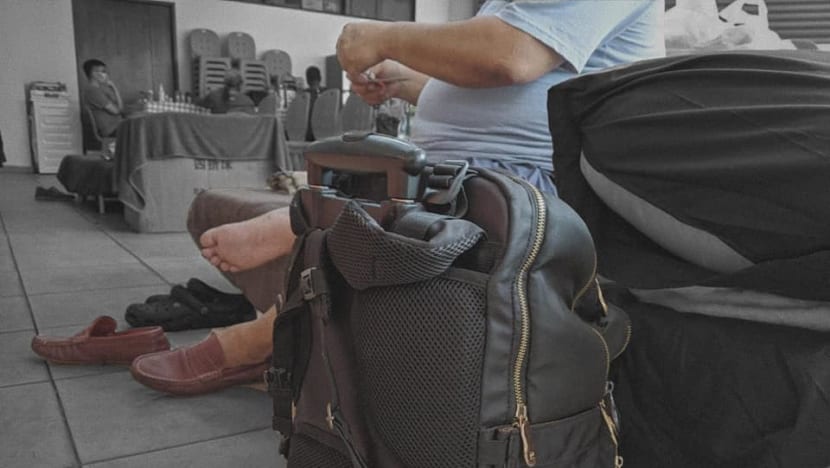Those who lost jobs during COVID-19 and cannot afford rent among new groups of homeless people in Singapore: Study
This is the second nationwide study on homelessness in Singapore, with the first being conducted in 2019.

File photo of a person in a temporary homeless shelter in April 2020 during the circuit breaker period. (Photo: CNA/Vanessa Lim, Jonathan Yeo)
SINGAPORE: A study on homelessness in Singapore has identified two new groups of homeless people.
The first comprises people who lost their jobs during the pandemic and were forced to seek shelter as they could not afford to pay rent for a room on the open market.
Prior to this, some used to move frequently between open market rentals and staying with family and friends but the pandemic had a direct impact on many of these arrangements.
In one case highlighted in the study, a person who had been renting a bedroom in a HDB flat, had his tenancy terminated because the landlord was worried that he “might bring COVID home”.
Others who had been living with their friends had been asked to leave out of fear of breaking rules on social visits during the circuit breaker period.
The second group is made up of middle-aged Singaporean men who are married to Malaysian or Indonesian nationals and live in the countries but frequently travel to Singapore for higher-paying jobs.
Border closures in 2020 resulted in the displacement of this group, many of whom suddenly found themselves unable to return to Malaysia and Indonesia and were forced to sleep on the streets.


The study was done by Dr Ng Kok Hoe, a senior research fellow at the Lee Kuan Yew School of Public Policy, who led a team of researchers at the school’s Social Inclusion Project to do Singapore’s second nationwide study on homelessness.
Among its findings, the study found that the scale of homelessness did not change significantly between 2019 and 2021, despite intense state intervention and the far-reaching impact of the COVID-19 pandemic.
The combined size of the street homeless and temporary shelter populations in 2021 was 1,036, comparable to the 1,115 recorded in 2019.
In addition to street counts, researchers also conducted in-depth interviews with 51 residents at a temporary shelter for homeless people, to understand their personal circumstances, housing histories and pathways into homelessness.
Most of the interview participants were Singaporean men, aged 50 years and above, with the majority having only primary or secondary education. Many were working or looking for work and about half were either divorced or widowed.
Besides the two groups, the study also identified another group of homeless people among its interview participants.
This group, which comprises more men than women, is made up of people who have been rough sleeping even before the pandemic hit Singapore in February 2020.
The long-term homeless people have been on the streets from a few months to up to 25 years, with their ages ranging from the 30s to the 70s.
Many had completely lost contact with their family and had poor experiences with public rental housing. They were found while rough sleeping during the pandemic and referred to the shelter.
All of them had experienced problems in their family relationships such as historical misunderstandings with parents or siblings that led to participants leaving the family at a young age or acrimonious breakups involving years of conflict, even violence.
Describing their work and finances, the report said this group is made up of people who have low-wage and insecure jobs and live in extreme poverty.
They had little or no savings, and had to carefully ration any money they received by cutting back on basic needs like food and toiletries, the report found.
Across the three groups, there are several common factors that contributed to their homelessness.
These include family conflict, insecure work and the inability to meet basic needs, and for some, physical and mental health problems.
The report also highlighted the public rental housing system as a contributing factor to homelessness in some cases.
Pointing to the Joint Singles Scheme which requires applicants to pair up, the report said it created barriers to access and opportunities for conflict among tenants that led to exit from rental housing.
It suggested making the formal eligibility rules fairer and according priority to people who are at risk of homelessness or already homeless, while assuring basic standards of space and privacy.















